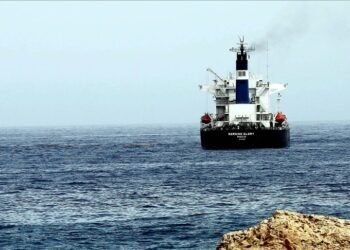DARFUR, SUDAN – In Sudan’s war-torn city of Al-Fashir, the last army stronghold in western Darfur, desperation is growing under an unrelenting siege by the Rapid Support Forces (RSF). Artillery shells, drone strikes, mass hunger, and outbreaks of disease have turned the besieged city into a humanitarian catastrophe.
Once a safe zone in the three-year civil war, Al-Fashir is now the epicenter of the conflict, with food running out, medical supplies nearly exhausted, and electricity shut down. “The number of dead rises daily, and the cemeteries are expanding,” one resident told Reuters.
The RSF’s escalating offensive has cut off aid routes, attacked convoys, and driven prices of smuggled goods to more than five times the national average. People have resorted to eating hay and ambaz, a livestock feed made from peanut shells—which itself is in dwindling supply.
“Even I haven’t had breakfast. There’s nothing left to eat,” said a local doctor, requesting anonymity for safety.
The fall of Al-Fashir would grant RSF control of nearly all of Darfur—bordering Libya, Chad, the Central African Republic, and South Sudan—significantly altering Sudan’s political geography and potentially formalizing a de facto division of the country.
No Safe Escape: Fleeing Residents Face New Dangers
Those fleeing Al-Fashir in search of safety have found themselves under attack en route. Nineteen-year-old Enaam Abdallah described multiple assaults during her escape.
“They took our phones, our money—even the donkeys. They killed people in front of us and kidnapped girls,” she said.
At least 14 civilians were reportedly killed and dozens injured during a recent RSF ambush on fleeing residents, according to Emergency Lawyers, a Sudanese human rights group.
Nearby Tawila, once a village, now hosts over 500,000 displaced people, most of them arriving since April after RSF forces attacked the massive Zamzam displacement camp.
Yet Tawila offers little relief. Humanitarian aid is scarce, shelters are makeshift, and access to clean water and sanitation is almost nonexistent. According to the Norwegian Refugee Council, only 10% of people there have reliable access to water; fewer still have latrines.
“We have no roof. We wait for the rain to stop before the children can sleep,” said Huda Ali, a mother of four.
Cholera Outbreak Adds to Crisis
As the rainy season intensifies, so does the threat of disease. Doctors Without Borders (MSF) has treated more than 2,500 cholera cases since mid-June, while at least 52 people have died, advocacy groups report.
The United Nations urged a humanitarian ceasefire last month to enable relief access during the rains, but the RSF rejected the appeal.
Meanwhile, fighting continues across neighboring Kordofan, with both sides seeking to consolidate control amid deadlocked peace negotiations.
What remains in Al-Fashir is a grim tableau: besieged civilians, a crumbling health system, children dying of hunger, and a war showing no signs of abating.
-Nafisa Eltahir, Khalid Abdelaziz, and Mohamed Jamal
WATCH, LIKE & SUBSCRIBE FOR MORE EXCLUSIVE TALKS

















